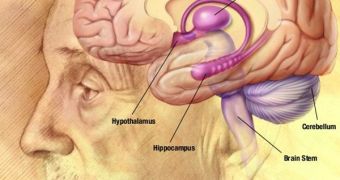Though past studies seemed to suggest otherwise, a collaboration of investigators determined in a recent research that the human brain indeed continues to develop well into a person's 20s. Until now, scientists widely believed that significant development stopped in adolescence.
This groundbreaking study – conducted by scientists at the University of Alberta, in Canada – comes on the heels of several investigations conducted over the past few years, which showed that the brain remains plastic throughout the human life span, and that it can also regenerate..
Such discoveries are only made possible by the fact that our medical imaging technologies are getting so much better as the decades pass. Half a century from now, other techniques may have already revealed everything there is to know about the brain, but right now we are taking things one at a time.
Details of the newest study on brain development were published in a paper appearing in the latest issue of the esteemed Journal of Neuroscience, PsychCentral reports. A number of 103 healthy test subjects, aged 5 to 32, were investigated for this survey.
UA experts used magnetic resonance imaging (MRI) to look at test subjects' brain activity patterns, while the latter were relaxing. Each participant went through the MRI machine twice, and experts ended up with a total of 221 scans.
“This is the first long-range study, using a type of imaging that looks at brain wiring, to show that in the white matter there are still structural changes happening during young adulthood,” research scientist Catherine Lebel, PhD, explains.
“The white matter is the wiring of the brain; it connects different regions to facilitate cognitive abilities. So the connections are strengthening as we age in young adulthood,” the study team member adds.
The most remarkable finding was that areas in the frontal lobe of the brain continued to develop after the age of 20. These regions are responsible for underlying more complex cognitive functions, such as for example attention, higher-level functioning and behavior inhibition.
All of these functions, and many others, are what allowed our species to become civilized, and humans to communicate and cooperate with each other, building cities and keeping themselves safe. From an evolutionary perspective, this continued development makes a lot of sense.
“What’s interesting is a lot of psychiatric illness and other disorders emerge during adolescence, so some of the thought might be if certain tracts start to degenerate too soon, it may not be responsible for these disorders, but it may be one of the factors that makes someone more susceptible to developing these disorders,” adds study coauthor and UA expert Christian Beaulieu, PhD.

 14 DAY TRIAL //
14 DAY TRIAL //